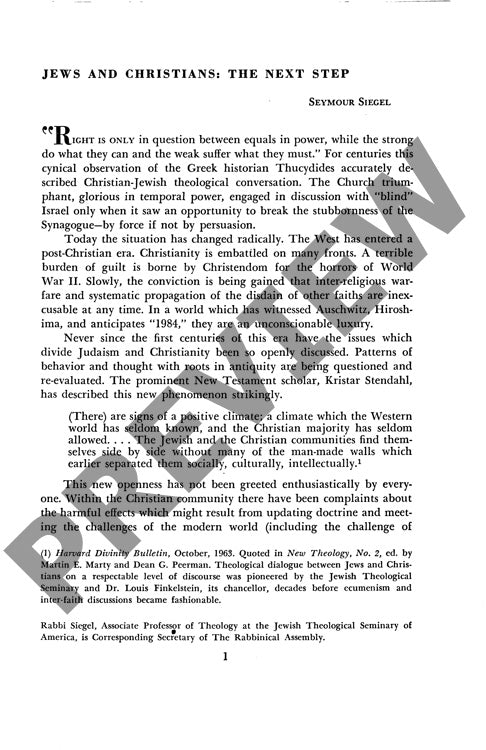Jews and Christians the Next Step
Couldn't load pickup availability
The centuries-old theological divide between Judaism and Christianity stands at a critical turning point in the post-World War II era, presenting both unprecedented challenges and opportunities for meaningful dialogue. Historical analysis reveals Christianity's supersessionist theology as a persistent obstacle to Jewish-Christian relations, while Judaism maintained a relatively tolerant view of Christianity as a derivative monotheistic faith. Drawing from patristic sources, medieval theological texts, Enlightenment-era writings, and contemporary interfaith scholarship, the research traces how Enlightenment rationalism paradoxically deepened religious polemics by forcing both communities into defensive apologetics. Two promising theological frameworks emerge: Rosenzweig's "double covenant theory," which legitimizes both faiths' divine covenants, and "eschatological ecumenism," which defers ultimate theological resolution to divine judgment. The path forward requires Christianity to confront its supersessionist theology and anti-Jewish teachings while recognizing that Jewish identity fundamentally derives from covenantal community membership rather than theological positions. Successful interfaith relations ultimately depend less on doctrinal reconciliation than on fostering mutual respect, practical cooperation, and unified responses to the challenges both faiths face in an increasingly secular world.

More Information
-
Physical Description
-
Publication Information
Published 1965
ISBN
-
Publication Credits
Seymour Siegel

